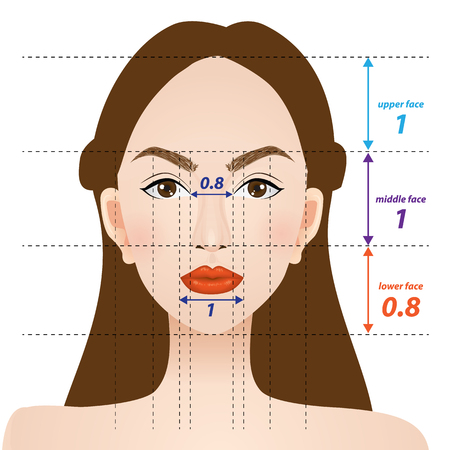Understanding the UK’s Multicultural Landscape
When it comes to aesthetic consultations in the UK, one of the most crucial factors is recognising and respecting the nation’s rich multicultural fabric. The UK is home to an extraordinary blend of ethnicities, cultures, and social backgrounds, each contributing its own unique perspective on beauty and self-expression. This diversity directly influences what clients look for during their consultations—whether they are seeking subtle enhancements that honour their heritage or modern treatments inspired by global trends. As practitioners, truly understanding how a client’s cultural background shapes their ideals can transform the consultation experience from a routine appointment into a genuinely meaningful exchange. Navigating this landscape means staying curious, listening closely, and appreciating that there is no one-size-fits-all approach to beauty in Britain. From my own experiences, I’ve found that an open mind and a willingness to learn about different traditions not only builds trust but also helps deliver results that feel authentic and empowering for every individual who walks through the door.
British Communication Styles and Building Rapport
In the context of aesthetic consultations within the UK, understanding and adapting to British communication styles is essential for building lasting trust with clients. The British approach to conversation is often characterised by subtlety, understatement, and an emphasis on politeness, which can shape the entire consultation experience. Recognising these nuances allows practitioners to connect more deeply with their clients, ensuring that every interaction feels respectful and reassuring.
The Power of Subtle Communication Cues
British clients may not always express their preferences or discomforts directly. Instead, they often rely on non-verbal cues, gentle hints, or carefully chosen words to communicate their feelings. Picking up on these subtleties—such as a slight hesitation before answering, a polite nod, or indirect expressions—can provide valuable insight into a client’s true thoughts and concerns. Practitioners who are attentive to these signals are better equipped to address underlying anxieties and foster a sense of safety.
The Importance of Politeness in Consultations
Politeness is woven into the fabric of British culture and plays a pivotal role in professional interactions. Courteous greetings, using formal titles (unless invited otherwise), and expressing gratitude are all markers of respect that help set clients at ease. This approach extends to managing expectations as well; even when delivering difficult news or discussing limitations, framing feedback in a positive, considerate manner preserves the client’s dignity and supports trust-building.
Key Conversational Norms in British Consultations
| Norm | Description | Practical Example |
|---|---|---|
| Indirectness | Avoiding blunt statements; using softer language to suggest ideas or concerns. | “You might find this option quite comfortable” instead of “This is your only choice.” |
| Understatement | Downplaying strong opinions or emotions to maintain harmony. | “It’s not too bad” to mean “I’m very happy with it.” |
| Politeness Strategies | Using ‘please,’ ‘thank you,’ and apologies frequently. | “Would you mind if I ask a few questions?” |
Establishing Trust through Familiarity and Respect
Building rapport with British clients often involves gentle humour, shared cultural references, and active listening. Taking time to remember personal details from previous conversations demonstrates genuine care beyond the transactional nature of the consultation. By aligning your conversational style with local norms—balancing professionalism with warmth—you create an environment where clients feel understood and valued. Ultimately, mastering these nuances transforms routine consultations into meaningful partnerships rooted in mutual trust.

3. Respecting Personal Boundaries and Privacy
One of the most defining aspects of aesthetic consultations in the UK is the deep-rooted respect for personal boundaries and privacy. British culture places a high value on discretion, especially when it comes to matters of appearance and self-improvement. During my experience working with clients from different backgrounds across the UK, I’ve noticed how important it is to create an environment where individuals feel safe to express their concerns without fear of judgement or unwanted exposure.
From the initial greeting, maintaining a polite distance and using subtle, non-intrusive language sets a comfortable tone. It’s common for British clients to appreciate a gentle approach—one that avoids overly personal questions unless absolutely necessary for their treatment plan. As practitioners, we should always ask for permission before touching or examining any area, even if it seems routine. Small gestures like these are not just good manners; they’re essential for building trust.
Confidentiality is paramount. Many clients seek aesthetic treatments with the expectation that their choices will remain private. In my practice, I ensure all discussions take place in a secure setting, away from public areas. This respect for privacy extends beyond the clinic—clients want reassurance that their information will never be shared without explicit consent.
By prioritising discretion and respecting personal space throughout every step of the consultation and treatment process, we demonstrate our understanding of the UK’s cultural nuances. This thoughtful approach not only reassures clients but also fosters long-term relationships built on mutual respect and trust.
4. Celebrating Individuality: Aesthetic Ideals Across Cultures
One of the most rewarding aspects of practising aesthetics in the UK is witnessing the wonderful spectrum of beauty ideals present within our diverse communities. As practitioners, it’s essential to recognise that there is no universal standard for beauty—what is cherished in one culture may be less significant in another. This understanding not only enriches our own perspective, but also lays the foundation for genuine trust with clients from all backgrounds.
Understanding Beauty Through a Cultural Lens
Every community brings its own unique narrative to the consultation room. For example, while some British clients may favour subtlety and natural enhancement, others from Afro-Caribbean, South Asian, or Eastern European backgrounds might have different priorities when it comes to features such as skin tone, facial contours, or even expressions of ageing. Listening attentively and being open to these perspectives shows respect and professionalism.
Comparing Aesthetic Preferences Across Communities
| Community | Common Aesthetic Preferences | Cultural Considerations |
|---|---|---|
| Afro-Caribbean | Even skin tone, emphasis on lips and cheekbones | Sensitivity to pigmentation and keloid scarring |
| South Asian | Brightening treatments, defined jawlines | Awareness of hyperpigmentation risks and hair texture variations |
| Eastern European | High cheekbones, contoured noses, fuller lips | Cultural pride in bold features; preference for visible results |
| British (White) | Subtle enhancements, natural appearance | Desire for discretion; minimal downtime post-procedure |
Embracing Diversity in Practice
The key to successful consultations lies in asking thoughtful questions and inviting clients to share what beauty means to them personally. Practitioners can demonstrate cultural sensitivity by staying informed about common concerns within different groups, adapting their approach accordingly, and avoiding one-size-fits-all solutions. Using inclusive language and showing appreciation for each client’s individuality fosters lasting relationships built on mutual respect and confidence.
5. Navigating Sensitive Topics with Empathy
Approaching delicate subjects such as age, ethnicity, and body image within aesthetic consultations requires not just professionalism but also a keen sensitivity to the UK’s unique cultural landscape. British clients often appreciate discretion and subtlety, especially when discussing personal appearance or identity. To foster trust and comfort, start by creating a private, welcoming space where clients feel safe to express their concerns without judgement. When addressing age-related treatments, avoid direct comments on looking “old” or “tired”; instead, focus on positive language like enhancing vitality or restoring confidence. For matters of ethnicity, be mindful that the UK is richly multicultural—listen closely to how clients describe their features and preferences, and avoid making assumptions based on background. Acknowledge and respect the beauty ideals that may vary across different communities. In conversations about body image, steer clear of negative descriptors or unsolicited advice; instead, ask open-ended questions to understand each individual’s goals and feelings. Remember that in British culture, self-deprecation can sometimes be a way for clients to deflect embarrassment—respond with reassurance rather than agreement. Ultimately, empathy is key: validate your client’s experiences and choices while gently guiding them through available options. This compassionate approach helps dismantle stigma around aesthetic treatments and encourages a more honest, trusting dialogue between practitioner and client.
6. Building Lasting Trust through Inclusive Practice
Creating a genuinely inclusive and culturally aware environment isn’t just a tick-box exercise—it’s the very foundation for forging deeper, more authentic relationships with clients across the UK’s rich tapestry of communities. When people walk into your clinic and feel truly seen, heard, and respected—whether they’re from London’s vibrant West African community, Manchester’s thriving South Asian quarter, or Edinburgh’s historic Jewish neighbourhood—they relax and open up in ways that spark real trust. This trust is hard-earned and can only be nurtured by taking time to understand subtle cultural preferences around beauty, privacy, gender roles, and even communication styles.
When your team demonstrates cultural sensitivity—perhaps by offering consultations in different languages, understanding religious modesty requirements, or simply being attuned to generational differences in aesthetic goals—you send a powerful message: “You belong here.” Over time, this inclusive ethos doesn’t just boost client loyalty; it also elevates your clinic’s reputation within the competitive UK market. Word spreads quickly through local networks when clients feel valued for who they are, not just what they look like. In my own practice, I’ve found that celebrating festivals from various cultures, incorporating artwork that reflects diverse beauty ideals, and actively seeking feedback on how we can improve have all been key to building lasting connections.
Ultimately, when inclusivity is woven into every touchpoint—from marketing materials to aftercare follow-ups—you foster a sense of belonging that transforms first-time visitors into lifelong advocates. It’s this commitment to embracing the UK’s cultural nuances that sets truly exceptional aesthetic clinics apart, earning both trust and admiration from clients who know their uniqueness will always be celebrated.


